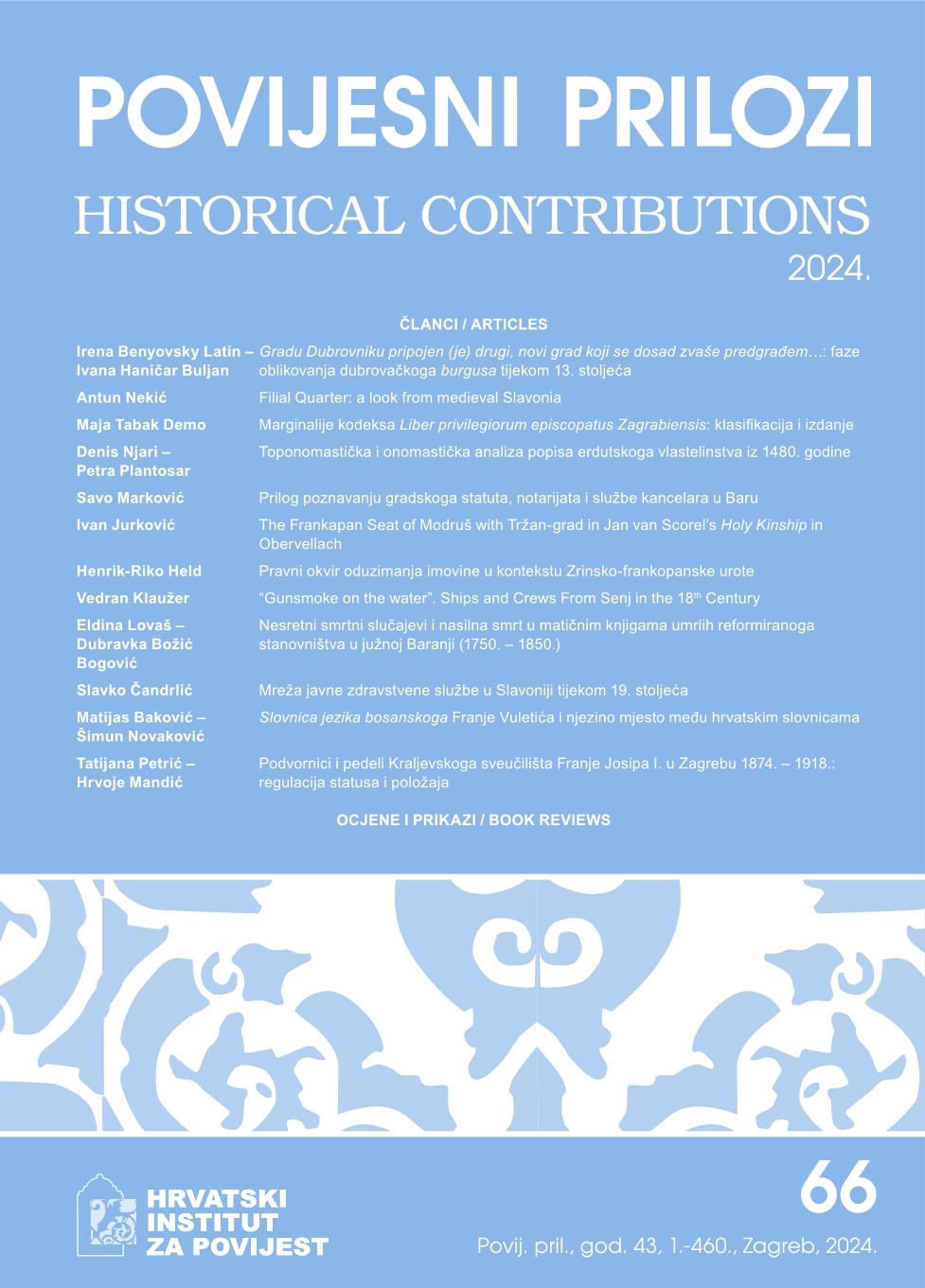Pravni okvir oduzimanja imovine u kontekstu Zrinsko-frankopanske urote
DOI:
https://doi.org/10.22586/pp.v43i66.30030Ključne riječi:
Zrinsko-frankopanska urota, konfiskacija, zločin uvrede veličanstva (crimen laesae Maiestatis), veleizdaja, rimska pravna tradicijaSažetak
Autor analizira pravni okvir za različite slučajeve oduzimanja imovine koji su se dogodili tijekom vojnog postupanja protiv Zrinskog i Frankopana te vezano uz opću konfiskaciju njihove imovine u kontekstu zločina uvrede veličanstva (crimen laese Maiestatis) za koji su bili optuženi te naposljetku i osuđeni. Središnji problem vezan je uz okolnost da je konfiskacija najprije bila određena u carskoj proskripciji, tj. kraljevskom proglasu protiv Zrinskog i njegovih suradnika krajem ožujka 1670. g. te da je uskoro bila i provedena, a da se ujedno tražila i u postupku protiv njih (studeni 1670. g. - travanj 1671. g.) te naposljetku bila i određena u presudi. U tom smislu kao pravni problem ističe se pitanje kada točno nastupa pravni učinak konfiskacije kod zločina uvrede veličanstva u rimskoj pravnoj tradiciji, već samim počinjenjem djela ili tek donošenjem presude. U analizi se najprije na temelju postojećih izvora iznosi kronologija najvažnijih događaja vezanih uz oduzimanje imovine. Zatim se prostor posvećuje argumentaciji obrane i optužbe u postupku protiv Zrinskog i Frankopana u odgovarajućim procesnim spisima. Posebna pažnja daje se problemu pravne osnove za konfiskaciju, te se analizira konfiskacija imovine u kontekstu zločina uvrede veličanstva u rimskom pravu i rimskoj pravnoj tradiciji (posebno u kontekstu prava primjenjivog u postupku protiv Zrinskog i Frankopana). S druge strane, analizira se i problematika pravnog uređenja oduzimanja imovine pobunjenicima u okviru tada važećeg prava naroda (ius gentium). Naposljetku se razlažu mogući uzroci kumuliranja pravnih osnova konfiskacije imovine u ovom slučaju.
Preuzimanja
Objavljeno
Broj časopisa
Rubrika
Licenca
Autorska prava (c) 2024 Authors and journal

This work is licensed under a KreativniCommons Attribution-NonCommercial Međunarodne licence.



